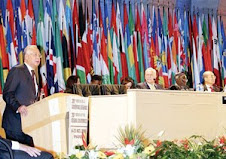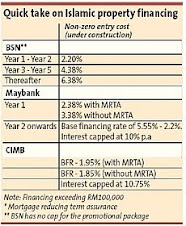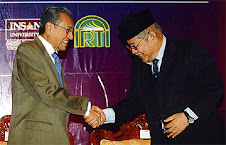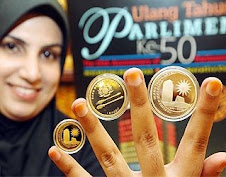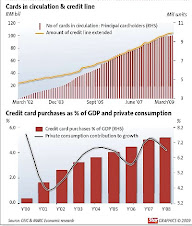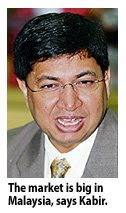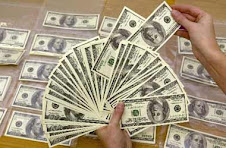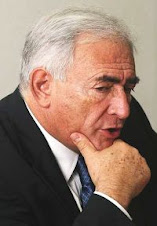November 03, 2009 19:21 PM
Significant Success For Malaysia In Islamic Finance, Says Najib
KUALA LUMPUR, Nov 3 (Bernama) -- Prime Minister Datuk Seri Najib Tun Razak said Malaysia has achieved significant success in Islamic finance which at end June this year accounted for close to 19 per cent of the country's banking assets.
As at end-August, the Islamic capital market too had reached RM803 billion, representing 54 per cent of Bursa Malaysia's market capitalisation.
"Total financing now amounts to RM115 billion and constitutes 15.5 per cent of the total financing portfolio of the banking industry. Net non-performing financing remains low at 2.4 per cent," he said.
In his keynote address at the Sixth Annual Kuala Lumpur Islamic Finance Forum (KLIFF) here Tuesday, the Prime Minister said the country is also seeking to enhance its connectivity in Islamic Finance with other financial centres through Malaysia International Islamic Financial Centre (MIFC).
"For this purpose, Malaysia has entered into agreement via a memorandum of understanding with various jurisdictions for greater collaboration and engagement of mutual benefits in Islamic finance," he said.
He said Malaysia will continue to lead the way in expanding the outreach of Islamic finance, and therefore more MoUs signing with jurisdictions in other parts of the world are expected in the future.
In his address, Najib said Islamic finance was a strategic vital element in the world's recovery from a financial crisis that has shaken both finances and faith in banking institutions.
"Although Islamic finance has largely escaped the ravages caused by overzealous financial innovation and imprudent lending practices which were at the heart of the global financial crisis, we cannot afford to be complacent," he said.
He said it was imperative for the industry to draw upon the lessons learnt to ensure that it can avoid any such financial instability in the future.
Najib also highlighted several key drivers to ensure continuing resilience of Islamic finance in withstanding the impact of current and future crisis.
"Firstly, ensuring that innovation in Islamic finance remains grounded in Maqasid al Shariah (objectives of Syariah) which serves to anchor the business paradigm of Islamic finance in realisation of benefits to the people."
Then, innovation must also be supported by strong governance practices which hold true to the needs of Islamic financial institutions.
It must also be ensured that risk management systems have appropriate safeguards and keep pace with the sophistication of innovation in Islamic finance, the prime minister said.
There is a need to ensure a comprehensive and supportive infrastructure - a legal, regulatory and supervisory framework that addresses the unique elements of Islamic finance industry development.
"This needs to be additionally supported by institutional arrangements for expedient, effective and cost efficient resolution of troubled financial institutions and a financial safety net framework that encompasses the lender of last resort and a deposit insurance system," he added.
-- BERNAMA
Tuesday, November 3, 2009
India buys half of IMF's gold for sale, pays US$6.7b
India buys half of IMF's gold for sale, pays US$6.7b
Published: 2009/11/04
MUMBAI/WASHINGTON: The International Monetary Fund (IMF) has sold 200 tonnes of gold to the Reserve Bank of India for US$6.7 billion (US$1 = RM 3.42), quietly executing half of a long-planned bullion sale that has threatened to slow gold's ascent.
The sale, which surprised traders who expected China to be the leading buyer, will relieve the gold market of some uncertainty over how and when the IMF would sell 403.3 tonnes of gold, about one-eighth of its total stock. The deal will increase India's gold holdings to the tenth largest among central banks.
It also fuelled speculation that other governments - including Beijing - may be ready to diversify their reserves even at near-record gold prices, helping soak up IMF supply that the fund may otherwise be forced to sell on the open market.
"Central banks in India and China will be happy to accumulate gold at these levels. I will not be surprised to see even some Southeast Asian banks buying gold," Aaron Smith, Asia head of the US$1.65 billion technical trading fund Superfund, told Reuters.
Spot gold prices rose about US$4 to US$1,063 an ounce yesterday, just shy of last month's US$1,070.40 record high, aided by a falling US dollar. Traders said the IMF news could add to the market's upward drive.
"The fact that they've sold the gold to India would suggest there's going to be fewer official sales by the IMF on the market. So that might be a positive theme for the gold price," said David Moore, commodities strategist at Commonwealth Bank of Australia.
Although the IMF's plan to sell a share of its gold holdings in order to increase low-cost lending to poor countries had been flagged for a year before it was formally approved in September, both the speed of the deal and the buyer were a surprise.
Although India is the world's biggest consumer of gold, primarily in the form of jewellery and investment among its billion-plus people, its central bank had given few indications of being a front-runner in the move to diversify into bullion.
The proportion of gold as part of its total foreign reserves had fallen over the past several decades, officials said.
India's foreign exchange reserves held at the central bank totalled US$285.5 billion on October 23, of which gold comprised just over US$10 billion. The latest purchase will lift its gold holdings from near 4 per cent to about 6 per cent, much less than most of the developed world but four times China's share.
Former Reserve Bank of India governor Bimal Jalan said the move was aimed at boosting resources for the IMF as both India and China had promised to help raise "fungible resources" to help other developing countries.- Reuters
Published: 2009/11/04
MUMBAI/WASHINGTON: The International Monetary Fund (IMF) has sold 200 tonnes of gold to the Reserve Bank of India for US$6.7 billion (US$1 = RM 3.42), quietly executing half of a long-planned bullion sale that has threatened to slow gold's ascent.
The sale, which surprised traders who expected China to be the leading buyer, will relieve the gold market of some uncertainty over how and when the IMF would sell 403.3 tonnes of gold, about one-eighth of its total stock. The deal will increase India's gold holdings to the tenth largest among central banks.
It also fuelled speculation that other governments - including Beijing - may be ready to diversify their reserves even at near-record gold prices, helping soak up IMF supply that the fund may otherwise be forced to sell on the open market.
"Central banks in India and China will be happy to accumulate gold at these levels. I will not be surprised to see even some Southeast Asian banks buying gold," Aaron Smith, Asia head of the US$1.65 billion technical trading fund Superfund, told Reuters.
Spot gold prices rose about US$4 to US$1,063 an ounce yesterday, just shy of last month's US$1,070.40 record high, aided by a falling US dollar. Traders said the IMF news could add to the market's upward drive.
"The fact that they've sold the gold to India would suggest there's going to be fewer official sales by the IMF on the market. So that might be a positive theme for the gold price," said David Moore, commodities strategist at Commonwealth Bank of Australia.
Although the IMF's plan to sell a share of its gold holdings in order to increase low-cost lending to poor countries had been flagged for a year before it was formally approved in September, both the speed of the deal and the buyer were a surprise.
Although India is the world's biggest consumer of gold, primarily in the form of jewellery and investment among its billion-plus people, its central bank had given few indications of being a front-runner in the move to diversify into bullion.
The proportion of gold as part of its total foreign reserves had fallen over the past several decades, officials said.
India's foreign exchange reserves held at the central bank totalled US$285.5 billion on October 23, of which gold comprised just over US$10 billion. The latest purchase will lift its gold holdings from near 4 per cent to about 6 per cent, much less than most of the developed world but four times China's share.
Former Reserve Bank of India governor Bimal Jalan said the move was aimed at boosting resources for the IMF as both India and China had promised to help raise "fungible resources" to help other developing countries.- Reuters
Subscribe to:
Posts (Atom)


